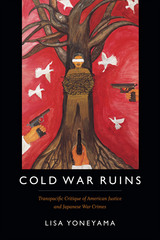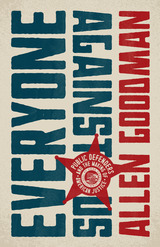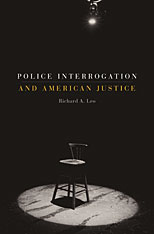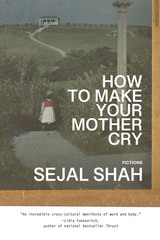

As a public defender, Allen Goodman faced cross-examination from family and friends every day: How could he work to help criminals? How could he live with himself? Presumed guilty by association, Goodman quickly learned that people didn’t really want an answer; they wanted a justification, perhaps even an apology. Ever the idealist, Goodman answered anyway: Everyone deserves justice.
Everyone against Us is Goodman’s testimony of his life as a public defender. In it, he documents his efforts to defend clients, both guilty and innocent, against routine police abuse, prosecutorial misconduct, and unjust sentencing. To work in criminal justice, Goodman shows, is to confront and combat vivid human suffering, of both victims and perpetrators. From sex trafficking, murder, and abuse to false conviction, torture, and systemic racism, Goodman describes the daily experiences that both rattled his worldview and motivated him to work ever harder. Part memoir, part exposé, Everyone against Us is the moving story of an embattled civil servant who staves off the worst abuses of the criminal justice system, at great personal cost.

"Read him his rights." We all recognize this line from cop dramas. But what happens afterward? In this book, Richard Leo sheds light on a little-known corner of our criminal justice system--the police interrogation.
Incriminating statements are necessary to solve crimes, but suspects almost never have reason to provide them. Therefore, as Leo shows, crime units have developed sophisticated interrogation methods that rely on persuasion, manipulation, and deception to move a subject from denial to admission, serving to shore up the case against him. Ostensibly aimed at uncovering truth, the structure of interrogation requires that officers act as an arm of the prosecution.
Skillful and fair interrogation allows authorities to capture criminals and deter future crime. But Leo draws on extensive research to argue that confessions are inherently suspect and that coercive interrogation has led to false confession and wrongful conviction. He looks at police evidence in the court, the nature and disappearance of the brutal "third degree," the reforms of the mid-twentieth century, and how police can persuade suspects to waive their Miranda rights.
An important study of the criminal justice system, Police Interrogation and American Justice raises unsettling questions. How should police be permitted to interrogate when society needs both crime control and due process? How can order be maintained yet justice served?
READERS
Browse our collection.
PUBLISHERS
See BiblioVault's publisher services.
STUDENT SERVICES
Files for college accessibility offices.
UChicago Accessibility Resources
home | accessibility | search | about | contact us
BiblioVault ® 2001 - 2024
The University of Chicago Press









